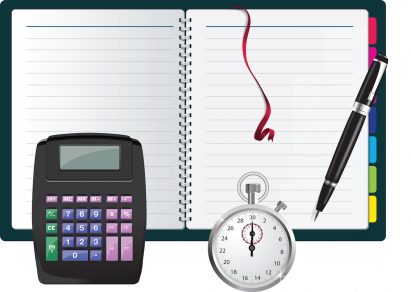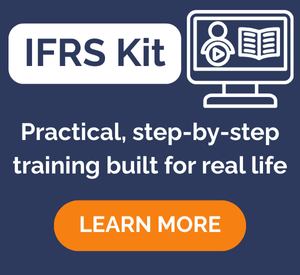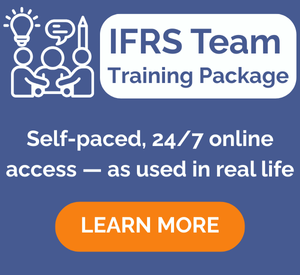The Best of CPDbox 2015
The year-end is coming closer and closer; the closings have already started to push their pressure on all of us, the exam season approaches and we live the busy lives. I know that this part of the year is usually the second busiest for any…
The Quick Guide to IFRS 7 Risk Disclosures
The financial instruments belong to the most complicated and difficult areas in IFRS and therefore, I dedicated many articles to making the things understandable a bit. However, until now, we haven’t even touched the complexity of the disclosures about financial instruments as required by IFRS…
Current or Non-Current?
Most balance sheets present individual items in distinction to current and non-current (except for banks and similar institutions). This seems so basic and obvious that most of us do not really think about classifying individual assets and liabilities as current and non-current. We do it…
How to Account for Employee Loans (interest-free or below-market interest)
After I wrote an article about capitalizing borrowing cost, I got a lot of e-mails asking me actually HOW to account for loans that do not bear the interest rate reflecting market conditions. In other words, how to account for loans at below-market interest rate,…
IFRS for Banks and Financial Institutions
If you work for a bank or any other financial institution, then you are very well aware of the fact that IFRS is a little bit different there. OK, not quite like that: IFRS is still the same, just the way how you use it…
How Ignoring Hedging Can Hurt Your Business
Hedge accounting has a reputation as being one of the most difficult areas for people to get to grips with, which is a shame because it is a very useful accounting “technology”. You can find several articles related to basics of hedge accounting in line…
Accounting for Prepayments in Foreign Currency under IFRS
Last update: 2023 Transactions in foreign currencies are sometimes a nightmare. Obviously, we are trading with each other, our own currencies are different and foreign exchange rates are jumping up and down constantly. We are all aware of basic rules with regard to selection of…
Top 5 IFRS Changes Adopted in 2014
The year 2014 brought us some very significant changes in IFRS. While some changes might not give you a hard time to adopt, the other changes can cost you a lot of money and time to make them effective in your company. The year 2014…
How New Impairment Rules in IFRS 9 Affect You
In July 2014, the standard IFRS 9 was finally completed and the latest amendments brought us new impairment rules (besides the other things). In my humble opinion, new impairment rules will cause a lot of headaches for mainly financial institutions. Why? Well, they will have…
Difference Between Fair Value Hedge and Cash Flow Hedge
The first thing you need to do before you even start to play with hedge accounting is to determine the TYPE of hedge relationship that you’re dealing with. Why? Because: the type of hedge determines your accounting entries. Make no mistake here. If you incorrectly…
Recent Comments
- Albert on Accounting for gain or loss on sale of shares classified at FVOCI
- Chris Kechagias on IFRS S1: What, How, Where, How much it costs
- atik on How to calculate deferred tax with step-by-step example (IAS 12)
- Stan on IFRS 9 Hedge accounting example: why and how to do it
- BSA on Change in the reporting period and comparatives
Categories
- Accounting Policies and Estimates (14)
- Consolidation and Groups (25)
- Current Assets (21)
- Financial Instruments (56)
- Financial Statements (54)
- Foreign Currency (9)
- IFRS Videos (74)
- Insurance (3)
- Most popular (7)
- Non-current Assets (56)
- Other Topics (15)
- Provisions and Other Liabilities (46)
- Revenue Recognition (27)
- Uncategorized (1)













